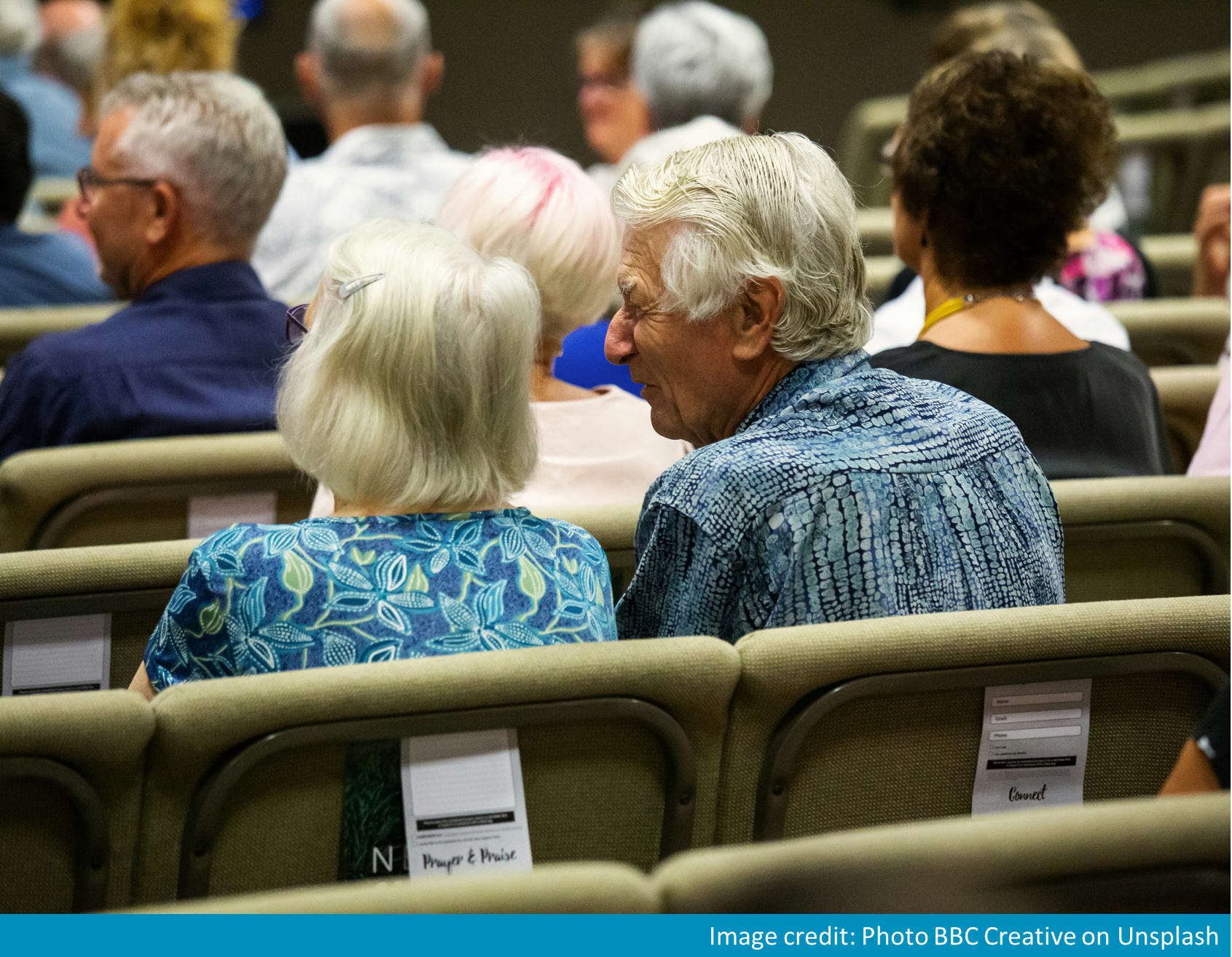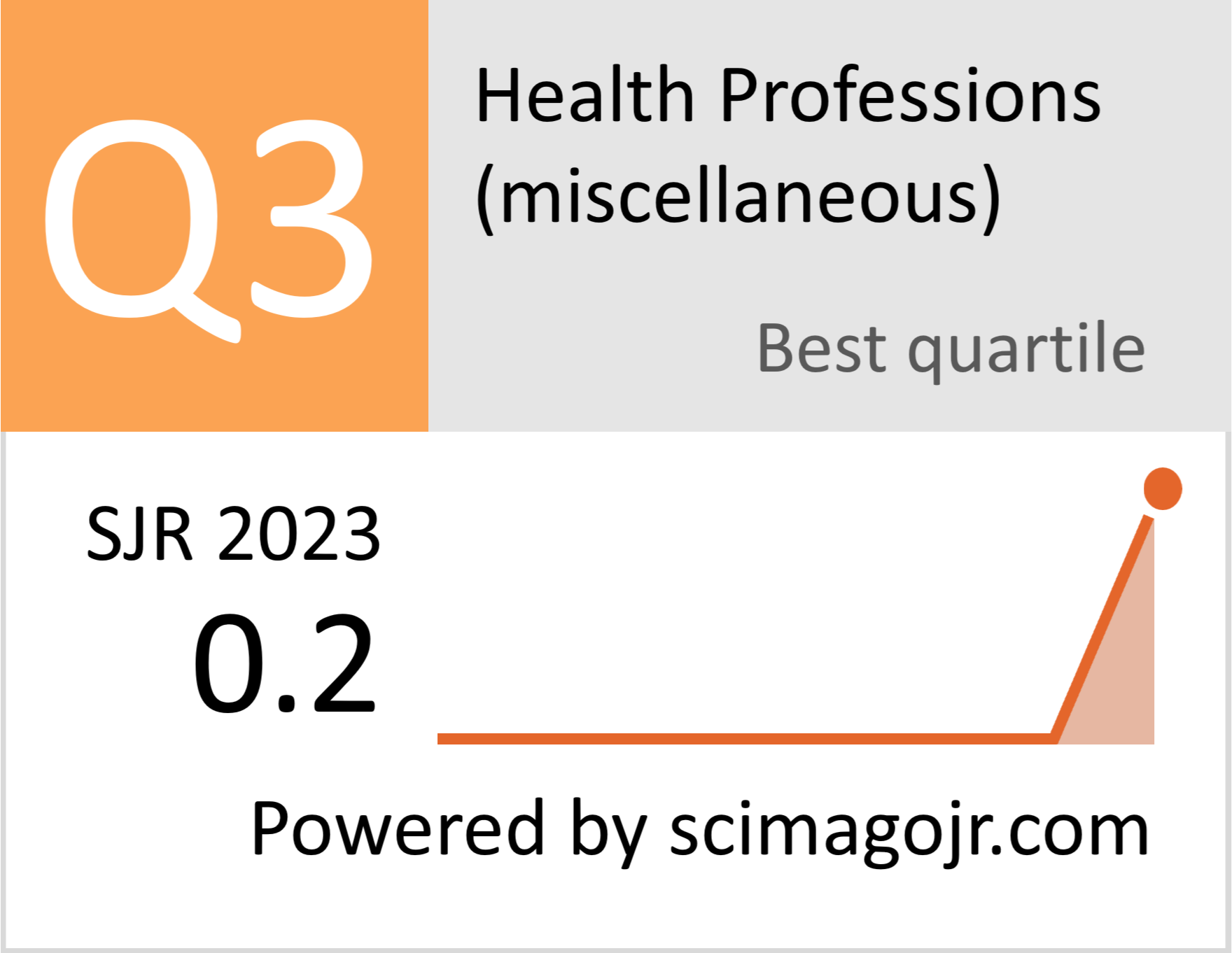Online Auditory Abilities Screening in Elderly: Initial Considerations
Evaluación en línea de habilidades auditivas en la tercera edad: consideraciones iniciales

This work is licensed under a Creative Commons Attribution-NonCommercial-NoDerivatives 4.0 International License.
Show authors biography
Objective. To analyze the results of AudBility's online screening in the elderly to assess its viability.
Methodology. The study included 40 elderly participants (mean age 67.4 years). They underwent online AudBility screening and completed a self-assessment questionnaire along with tests assessing seven auditory skills: sound localization (SL), dichotic digits task, speech perception in noise, auditory closure, staggered dichotic words test (SDW), temporal resolution, and temporal ordering. Descriptive data analysis considered AudBility's reference parameters: <50% = abnormal, 51-79% caution, >80% = normal.
Results. The tests with the highest frequency of abnormalities were SL and temporal ordering frequency (TOF), both with 22.5%. On average, these tests were considered as "caution" (SL = 72.75%; TOF = 67.5%). The self-assessment questionnaire had the highest frequency of "caution" results (52.5%), followed by SDW (35%) and TOF (32.5%). On average, the self-assessment questionnaire and TOF showed caution values (74.41% and 67.5%, respectively). SDW had normal average values (81.5%). No test showed abnormal average values.
Conclusion. Auditory screening using AudBility can serve as an entry point for assessing auditory and cognitive health in the elderly population, guiding referrals and therapies before in-person interventions.
Article visits 174 | PDF visits 6
- [Brazilian Institute of Geography and Statistics] Instituto Brasileiro de Geografia e Estatística, br-pt (IBGE) [Internet]. Population projection [cited 2024/feb/2]. Available from: https://www.ibge.gov.br/en/statistics/social/population/18176-population-projection.html
- World Health Organization [Internet]. Geneva: WHO; 2024. Deafness and hearing loss; 2024 Feb 2 [cited 2024/Feb/2]: [about 6 screens]. Available from: https://www.who.int/news-room/fact-sheets/detail/deafness-and-hearing-loss
- Lin FR, Metter EJ, O'Brien RJ, Resnick SM, Zonderman AB, Ferrucci L. Hearing loss and incident dementia. Arch Neurol [Internet]. 2011;68(2):214-20. doi: https://doi.org/10.1001/archneurol.2010.362
- American Speech-Language-Hearing Association (ASHA) [Internet]. Rockville: ASHA; n.d. Central Auditory Processing Disorder [cited 2024/feb/2]: [about 30 screens]. Available from: https://www.asha.org/practice-portal/clinical-topics/central-auditory-processing-disorder/
- Chermak G, Musiek F. Central auditory processing disorder: new perspectives. San Diego: Singular Pub. Group; 1997. 374 p.
- Ferguson M, Nakano K, Jayakody DM. Clinical Assessment Tools for the Detection of Cognitive Impairment and Hearing Loss in the Ageing Population. Clin Interv Aging [Internet]. 2023 Dec 7;2023:2041-51. doi: https://doi.org/10.2147/CIA.S409114
- Strouse AL, Hall JW, Burger MC. Central auditory processing in Alzheimer's disease. Ear Hear [Internet]. 1995;16(2):230-8. doi: https://doi.org/10.1097/00003446-199504000-00010
- Liu CM, Lee CT. Association of Hearing Loss With Dementia. JAMA Netw Open [Internet]. 2019;2(7):e198112. doi: https://doi.org/10.1001/jamanetworkopen.2019.8112
- Sardone R, Battista P, Donghia R, Lozupone M, Tortelli R, Guerra V, et al. Age-related central auditory processing disorder, MCI, and dementia in an older population of Southern Italy. Otolaryngol Head Neck Surg [Internet]. 2020 Aug;163(2):348-55. doi: https://doi.org/10.1177/0194599820913635
- Johnson JCS, Marshall CR, Weil RS, Bamiou DE, Hardy CJD, Warren JD. Hearing and dementia: from ears to brain. Brain [Internet]. 2021;144(2):391-401. doi: https://doi.org/10.1093/brain/awaa429
- Lau K, Dimitriadis PA, Mitchell C, Martyn-St-James M, Hind D, Ray J.Age-related hearing loss and mild cognitive impairment: a meta-analysis and systematic review of population-based studies. J Laryngol Otol [Internet]. 2022;136(2):103-18. doi: https://doi.org/10.1017/S0022215121004114
- Davidson A, Souza P. Relationships between auditory processing and cognitive abilities in adults: a systematic review. J Speech Lang Hear Res [Internet]. 2024;67(1):296-345. doi: https://doi.org/10.1044/2023_JSLHR-22-00716
- Amaral MIRD, Carvalho NG, Colella-Santos MF. Computer-based central auditory processing screening for school-age children (audBility): an initial investigation. Codas [Internet]. 2019;31(2):1-11. doi: https://doi.org/10.1590/2317-1782/20182018157
- Baecke JA, Burema J, Frijters JE. A short questionnaire for the measurement of habitual physical activity in epidemiological studies. Am J Clin Nutr [Internet]. 1982;36(5):936-42. doi: https://doi.org/10.1093/ajcn/36.5.936
- Donadon C, Sanfins MD, Borges LR, Colella-Santos MF. Auditory training: effects on auditory abilities in children with history of otitis media. Int J Pediatr Otorhinolaryngol [Internet]. 2019;118:177-80. doi: https://doi.org/10.1016/j.ijporl.2019.01.002
- Nunes CL, Pereira LD, Carvalho GS. Scale of Auditory Behaviors and auditory behavior tests for auditory processing assessment in Portuguese children. Codas [Internet]. 2013;25(3):209-15. doi: https://doi.org/10.1590/s2317-17822013000300004
- Peek S, Wouters E, Hoof J, Luijkx KG, Boeije H, Vrijhoef H. Factors influencing acceptance of technology for aging in place: a systematic review. Int J Med Inform [Internet]. 2014;83(4):235-48. doi: https://doi.org/10.1016/j.ijmedinf.2014.01.004
- Mukari S, Hashim W. Self-perceived hearing loss, hearing-help seeking and hearing aid adoption among older adults in Malaysia. Ann Otol Rhinol Laryngol [Internet]. 2018;127(11):798-805. doi: https://doi.org/10.1177/0003489418795982
- Filippini R, Brito NFS, Neves-Lobo I, Schochat E. Manutenção das habilidades auditivas pós treinamento auditivo. Audiol Commun Res [Internet]. 2014;19(2)112-6. doi: https://doi.org/10.1590/S2317-64312014000200003
- Maidment D, Baker AB, Xia J, Ferguson MA. A systematic review and meta-analysis assessing the effectiveness of alternative listening devices to conventional hearing aids in adults with hearing loss. Int J Audiol [Internet]. 2018;57(10):721-9. doi: https://doi.org/10.1080/14992027.2018.1493546
- Flamme GA. Localization, hearing impairment and hearing aids. The hearing journal [Internet]. 2002;55(6):10-20. doi: https://doi.org/10.1097/01.HJ.0000293272.79202.86
- Noble W, Byrne D, Lepage B. Effects on sound localization of configuration and type of hearing impairment. J Acoust Soc Am [Internet]. 1994;95(2):992-1005. doi: https://doi.org/10.1121/1.408404
- Delecrode CR, Cardoso ACV, Frizzo ACF, Guida HL. Pitch pattern sequence and duration pattern tests in Brazil: literature review. Rev CEFAC [Internet]. 2014;16(1):283-93. doi: https://doi.org/10.1590/1982-021620143912
- Rasmus A, Błachnio A. Auditory processing disorders in elderly persons vs. linguistic and emotional prosody. Int J Environ Res Public Health [Internet]. 2021;18(12):1-10. doi: https://doi.org/10.3390/ijerph18126427
- Samara M, Thai-Van H, Ptok M, Glarou E, Veuillet E, Miller S, et al. A systematic review and meta-analysis of questionnaires used for auditory processing screening and evaluation. Front Neurol [Internet]. 2023;14:1243170. doi: https://doi.org/10.3389/fneur.2023.1243170
- Kovalová M, Mrázková E, Škerková M, Čada Z, Janoutová J. The importance of screening for hearing loss in the elderly. Otolaryngol Pol [Internet]. 2022;76(3):32-8. doi: https://doi.org/10.5604/01.3001.0015.6493
- Lin FR, Pike JR, Albert MS, Arnold M, Burgard S, Chisolm T, et al. Hearing intervention versus health education control to reduce cognitive decline in older adults with hearing loss in the USA (ACHIEVE): a multicentre, randomized controlled trial. Lancet [Internet]. 2023;402(10404):786-97. doi: https://doi.org/10.1016/S0140-6736(23)01406-X
- Zanchetta S, Simões HO, Lunardelo PP, Canavezi MO, Reis ACMB, Massuda ET. Cross-cultural adaptation of the Amsterdam inventory for auditory disability and handicap to Brazilian Portuguese. Braz J Otorhinolaryngol [Internet]. 2020;86(1):3-13. doi: https://doi.org/10.1016/j.bjorl.2018.07.011



